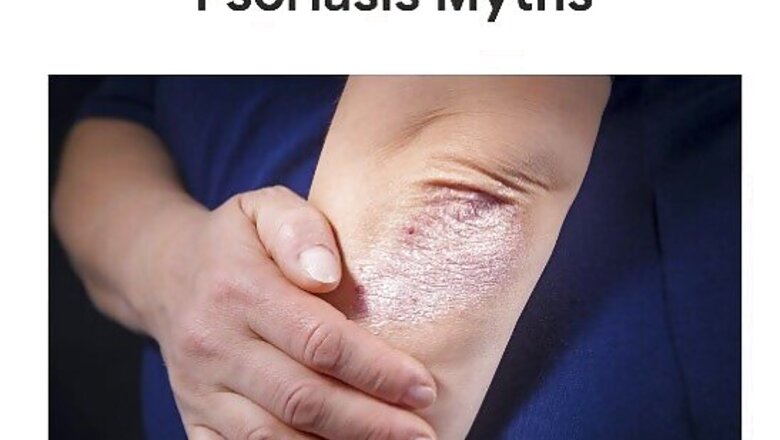
views
Psoriasis is not contagious, but if not treated at an early stage this may lead to serious conditions
The most common misconception about several skin diseases is that they are contagious and it’s no different for psoriasis, a chronic autoimmune condition that causes the rapid buildup of skin cells. This buildup of cells results in the scaling on the surface of the skin. Inflammation and redness are among the common symptoms of psoriasis.
Mostly red and white patches appear on skin in the different parts of the body like knees, elbows, trunk and scalp in the patients, who suffer from Psoriasis. Despite the advancement in medical science and advent of effective treatment, there are various misconceptions around this skin condition.
Recently, Ayurveda expert Dr Nitika Kohli shared a series of photos on Instagram debunking the myths about psoriasis.
Busting some common false notions about the skin disease, Dr Kohli, “How many times have you had to explain to someone that psoriasis isn’t contagious? We’re here to settle that — as well as a few other misconceptions.”
She began by debunking the most common myth about psoriasis that it’s contagious. The Ayurveda practitioner said, “Definitely not!” Another common myth that revolves around this skin disorder is that only adults get psoriasis. However, Dr Kohli said that people of any age can be affected by this skin infection.
It is believed that there is no treatment for psoriasis. However, the expert highlighted that there are safe and effective Ayurvedic treatments for this skin condition.
Often, people don’t take this skin disorder seriously considering psoriasis as only itching of skin. Dr Kohli suggested that if it’s not treated at an early stage it may lead to serious consequences.
“It is also connected with some potentially worrisome health conditions, including diabetes, liver disease and heart disease. It can affect your joints and cause arthritis, known as psoriasis arthritis.”
Dr Kohli also mentioned that psoriasis can also be genetic. There are different kinds of the skin condition like Pustular psoriasis, Guttate psoriasis, Inverse psoriasis and Erythrodermic psoriasis. The symptoms and treatment for each type could be different.


















Comments
0 comment